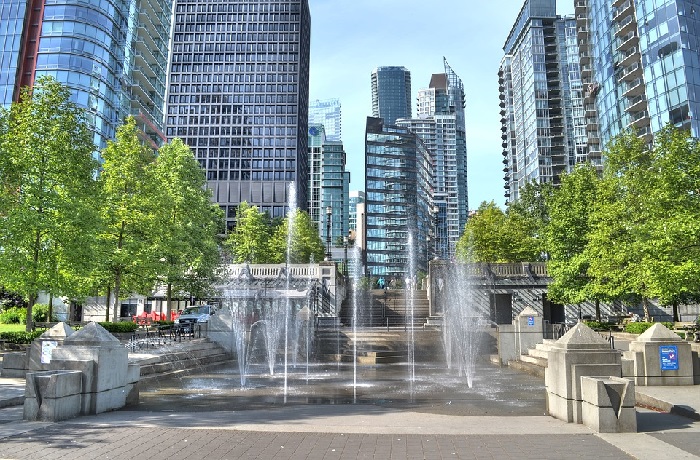Why You Need Renters Insurance
Unfortunate events in our rental homes are a fact of life. Whether through our fault or not floods, fires, fixture damage, walls, doors, appliances can be damaged. Repairs of course mean costs for the landlord but could mean disaster for you.
Your landlord may expect you to cover the costs of repairs, in fact more landlords are making renters insurance mandatory as part of the lease agreement. They’ll require proof of a live policy before you receive the keys, and they can monitor it online in case you decide to stop making the monthly payments. Having a policy is one way of showing the landlord that you’re a responsible tenant, removing their concerns about what will happen after a bad event, where you may not be able to live in the unit, and you could still be liable to pay the rent, and the rent of other affected tenants.
You should never assume the costs of accidents will be low and manageable. They can escalate quickly beyond what you can imagine. It’s just a fact of life today in litigious America, where legal and financial risks are heightened that you need to protect yourself.
Renters Insurance Coverage is Affordable
Fortunately, you can get renters insurance coverage affordably. In some cases you can bundle it with auto insurance, life insurance, health insurance, and perhaps have travel insurance thrown in. You can speak with insurance agents and negotiate. If you’re acquiring renters’ insurance alone, you’re getting good value and peace of mind. It’s a good expense.
Your Landlord’s and Parent’s Insurance Won’t Cover It

If you’re thinking that the landlord’s home or building insurance will cover all eventualities, well, it likely won’t. And if you’re hoping your parent’s home insurance policies will cover it, it may not. If you suffer a major fire in your unit, the repair costs will be in the tens of thousands, or more.
Crime in some cities is prevalent, where break-ins can generate losses and significant damage to the rental home. This means acquiring renters insurance is wise and financially responsible.
If you live in California, South Carolina, Texas, or Florida, you know about the dangers. Through hurricanes, floods and fires, renters have lost everything they own, and are unable to recoup their losses. They had to start all over again.
Why Renters Insurance is Vital Today:
- Personal Property Protection: Renters insurance covers the cost of replacing your personal belongings—such as furniture, electronics, clothing, and other valuables—if stolen, damaged, or destroyed by covered perils like fire, lightning, windstorms, vandalism, or certain types of water damage And your protection may extend to items outside your home, such as a laptop stolen from a coffee shop or a bike stolen from a retail store or transit station.
- Liability Coverage: This benefit protects you financially if you are found legally responsible for injuries to a visitor in your rental home or for accidental damage to someone else’s property (e.g., if your overflowing bathtub causes water damage to the apartment below, or your dog bites someone). It can cover medical bills, legal fees, and settlement costs (Source 1.5, 1.6, 1.9).
- Additional Living Expenses (Loss of Use Coverage): If your rental unit becomes uninhabitable due to a covered event (like a fire or extensive water damage), this coverage helps pay for temporary living costs, such as hotel stays, temporary rentals, increased food expenses, and even pet boarding, until your home is repaired.
- Landlord Requirements: While not legally required in most states, many landlords now mandate renters insurance as a condition of the lease to minimize their own risks and ensure tenants can cover potential damages or liabilities
What Will Your Policy Cover?
Each renters insurance company offers their own mix of coverage and benefits. You’ll need to shop for the right policy for you.
Typically, your policy’s coverage will include personal liability, the cost of repairing property damage and to replace items such as:
- Clothing
- Electronics (TVs, stereos, tablets, laptops, smartphones, computers, etc.)
- Furniture
- Leisure equipment (arcade systems, pool tables, ping-pong tables, etc.)
- Tools/power equipment
- Appliances you own and use in your rental unit (refrigerators, washers, dryers, etc.)
You might even have coverage outside of your home, while traveling.
If you’re fortunate enough to have a digitally savvy landlord, they may be able to set up an online subscription with an insurance provider within their property management software. It’s all done online. You can investigate renters insurance a service at ManageCasa.com.
Tip: consider bundling your renter’s insurance with auto insurance for savings. With rental prices at near-record levels, you’ll need all the breaks you can get.
The US housing market continues to stagnate, waiting for interest rates to come down. If rates fall, first-time homebuyers will be eager to put their bids in. The 2026 housing market looks good. The passing of President Trump’s Bill on the 4th of July will lower taxes for low-income workers, and pave the way for new home construction. See the Housing market update for the road ahead.







